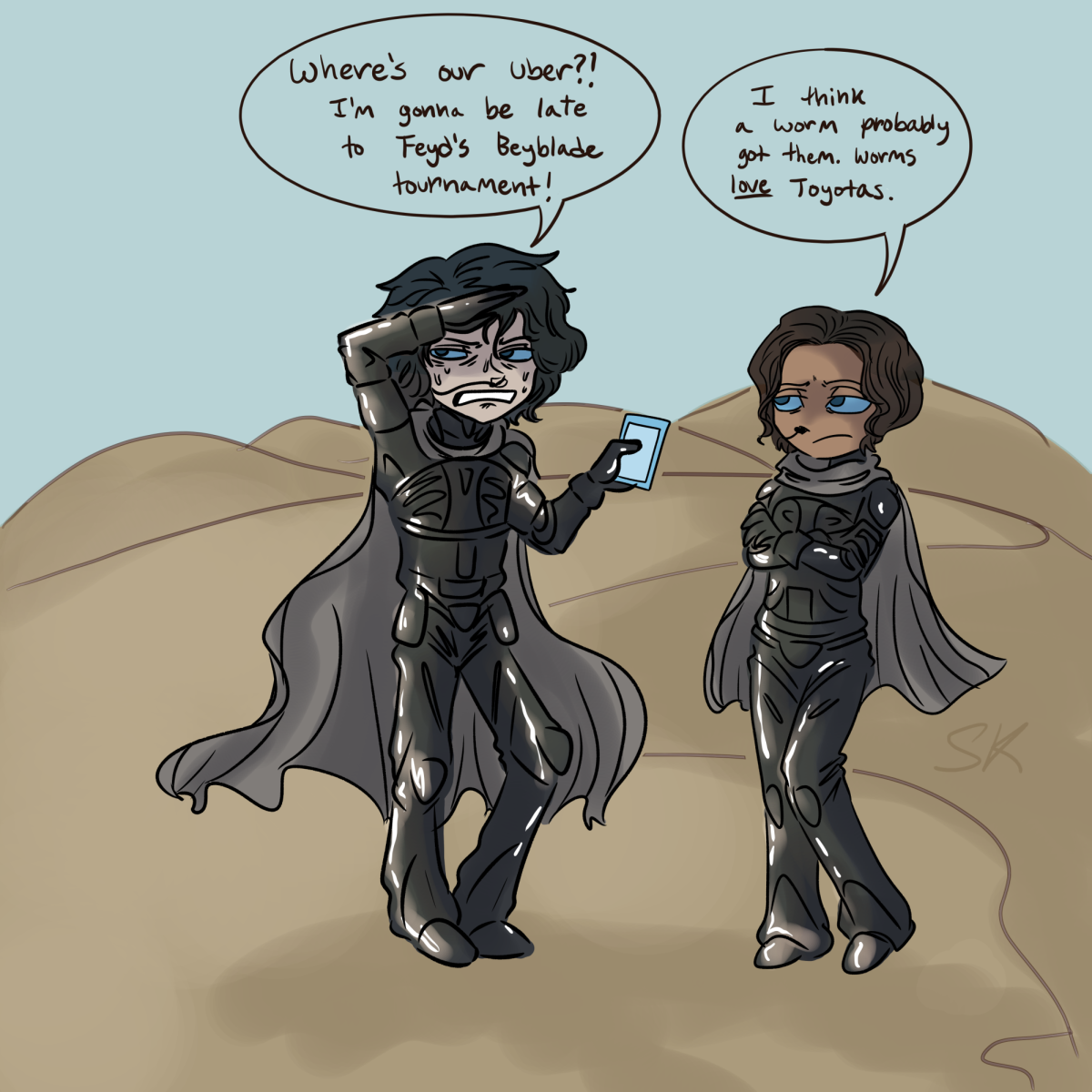First, I would like to make clear my intentions while touching on the sensitive topic of gender.
This article is not an attack on women-oriented initiatives, programs, companies or organizations.
Rather, this is an attack on capitalist use of gender, specifically women, to sell products.
Why women? Because more often than not, for an otherwise genderless product, there will be the regular version and then a woman’s version. That is a problem. What does a gendered product mean?
Example: Bic recently came out with a pink pen for her. Literally, the package has “for her” in cursive script largely printed on the front. That is a gendered product.
I can ignore most pink, frilly, “for women” products by simply not buying them. However, I started to realize a bigger issue when I discovered Luna bars were made “for women.”
It literally says “made for women” on the package.
Clif Bar, a leading and widely popular energy bar company, owns Luna Bar.
Clif Bar is dedicated to environmental protection, human rights and ethically manufacturing healthy energy supplements.
Luna Bar, as a company, is involved with amazing women-progressive initiatives like touring film festivals featuring women directors and writers, breast cancer awareness and sponsoring professional female athletes.
When I read on their website that “in 1999, Clif Bar & Company… launched LUNA with a singular goal: create a delicious, nutritious bar that women would love,” I am, frankly, confused.
Upon further website digging, I found this quote describing Luna Bar products: “provides essential minerals for women.”
Excellent, I thought; perhaps there is a scientific reason! But capitalism does not have a reputation for advertising with rational reason.
As expected, besides flavor and filler differences, the only mineral difference between a Clif bar and a Luna bar was zinc (Luna containing zinc).
Luna Bar’s website describes zinc as “an essential mineral that enhances immune function and cell growth and maintenance,” which doesn’t seem gender specific to me.
The Luna Bar company has an obvious connection to women; most of its corporate staff are women, one percent of their proceeds go to the Breast Cancer Fund, and the company finances a women’s professional mountain biking team.
However, these extracurricular good deeds do not explain why the product needs to be for women.
Clif Bar has similar charities, donations, partnerships and social responsibilities and seems to be doing fine advertising their energy bar for the product’s nutritional and delicious sake – not for men, or any gender for that matter.
Despite Luna Bar’s admirable ethical practice, the company still has an overall objective: to make a profit. From a capitalist perspective, Clif Bar’s decision to create a branch targeted for women must mean that women are buying more energy bars than before and, in fact, they are.
The shift in demographics is hardly a reason to target women in such a stereotypical way for an inherently genderless product.
Luna Bar separates itself from other energy bars by using advertising female buzz terms like low calorie (“no guilt”), “satisfy cravings” and indulgent.
As an athlete, I do not buy energy bars because I have chocolate cravings. Luna Bar reserves most of the textual space on its website for equally stereotypical approaches to female consumption.
While body perception is a huge issue for women, presenting a product under that assumption does not help mend the issue.
The tip of the iceberg is that Luna Bar, and Clif Bar alike, support and orient their products to athletes, a demographic that is not so usually gender focused and simply more focused on nutrition.
Clif Bar’s website emphasizes nutrition, organic ingredients and athletic uses such as aiding muscle recovery and replenishing electrolytes.
The only product on Clif Bar’s website that mentions gender (or even implications of gender stereotypes) is Luna Bar.
Comparing Clif Bar’s and Luna Bar’s websites makes the “why” question even bigger. If Luna Bar’s mission is based on health, nutrition and an overall betterment for community lifestyles, then why target women in the most cliché capitalist fashion?
Surely, the benefits women’s programs and organizations are receiving from Luna Bar as a company can sustain without making the product for women. Gendering is not necessary, as Clif Bar’s success proves.
The very fact that I cannot solidly answer the “why” question reinforces the reason this is a societal problem. It is an exaggeration in advertising that turns mundane products into “indulgences.”
Pens, magazines, toothbrushes and, now, energy bars are decorated and manipulated as if that will help define women’s femininity and that is the only way women will buy those products.
Gender specification is not necessary and, in most mundane products, it is completely irrelevant.
The obtuse gendered pressure in advertising is repulsive, yet it seems increasingly prevalent and shows up in the most ridiculous places.
I can expect such low blows from a company like Bic, but I am concerned that Clif Bar, a company that is socially and ethically progressive, still succumbs to irrelevant and unnecessary stereotyping in advertising.
Advertising is the leading force in gender stereotypes. If companies selling non-gender-specific products (as opposed to gender specific like tampons, etc.) stopped using exaggerated gender stereotypes, society as a whole can get over the construct of gender.
It is the first step to decreasing, eventually eliminating, gender related pressures in society.
























